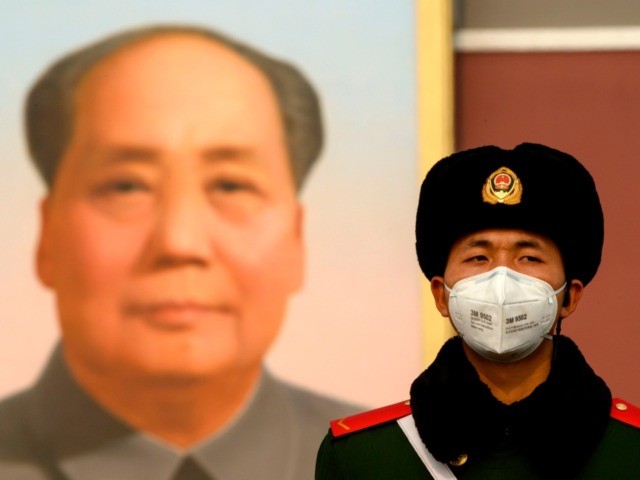We are now paying the true cost of the China price.
The China price is the ultimatum Walmart buyers give vendors: this is the price we will pay – if your factory in the U.S. can’t meet it, we have one in China that will, and we’ll be happy to help you move there.
The China price gave us an endless stream of cheap consumer goods. It was made possible by global supply chains, transoceanic containerized shipping, and just-in-time inventory management to control warehouse and carrying costs, all part of the logic of relentless cost-cutting Wall Street demanded of multinational corporations.
But the coronavirus has its own logic, and it does not respect the logic of Wall Street bankers, logistics managers, and mass merchandisers.
The pandemic has exposed the frailty of global supply chains and the fallacy of the management theory calling for intercontinental supply chains and just-in-time inventory management.
Quarantining more than 60 million people in over a dozen cities as a public health measure, the Chinese government has closed thousands of factories.
Problems extend far from Wuhan, the cradle of the coronavirus.
Apple has been forced to reduce global iPhone shipments by 10 percent this quarter because of disruptions in its China-dependent supply chain.
China’s 288 million migrant workers account for one third of China’s total labor force, and no one knows how many will—or can—return to work after the Lunar New year holiday, which was extended because of the outbreak.
The Global Times, official mouthpiece of the Chinese Communist Party acknowledges “a labor shortage issue seems to be haunting major Chinese cities including Beijing, Shanghai, Guangzhou and Shenzhen,” major manufacturing hubs.
Beijing’s transportation authority reports that of the 10 million people who left the capital ahead of the holidays, 8 million still have not returned.
China’s labor shortage is felt around the world.
China National Offshore Oil Corp. is refusing to take delivery of liquefied natural gas cargoes, blaming a shortage of workers due to the virus. PetroChina Co., the country’s largest oil and gas firm, says it also can’t get enough workers to offload cargoes at its terminals.
The story is the same for shipments of soybeans from the U.S. and Brazil, palm oil from Indonesia, copper from Chile. China’s biggest oil refiner is expected to ask Saudi Arabia to reduce supplies of crude oil.
Even China’s non-migrant labor force may not be able to go to work as mandatory lock downs spread.
Hangzhou, a city near Shanghai, is closing down “all non-essential public places and locking down residential communities,” the Global Times reports, limiting when markets may open and when shoppers can leave home. “People holding or participating in crowd activities shall be seriously punished, and weddings are forbidden.”
If truth is the first casualty of war, globalism would be the second, and perhaps greatest, casualty in the war on the coronavirus.
Globalism presumes the free flow of people, goods, and capital.
The captains of industry and finance dream of globe-straddling corporations efficiently combining the resources of country X with the labor of country Y to serve the market of country Z, free of “restrictions imposed by individual national governments,” a fully integrated global economy replacing “nostalgic nationalism,” as Wall Street grandee and former undersecretary of state George Ball told Congress in 1967.
Policymakers have worked to make this a reality with the Treaty of Rome, Maastricht, NAFTA, and the TransPacific Partnership.
A Tower of Babel of increasingly complex systems tied to yet more complex systems was built on this foundation.
But we are now seeing that people, goods, and money do not always flow freely.
And the problem with interdependent interlocking systems, such as regional electric power grids and highly leveraged mortgage-backed securities, is that disturbance of one part has unpredictable effects on the entire system – butterflies, hurricanes and all that.
Globalists recently fretted turbulence from the Trump administration’s tariffs would have catastrophic results on the global economy. Their fears turned out to be wrong.
We will now see what happens when the foundation of that system is shaken in a massive way.
Curtis Ellis is policy director of America First Policies. He was senior policy advisor on the Trump-Pence 2016 campaign and served in the Trump administration.

COMMENTS
Please let us know if you're having issues with commenting.